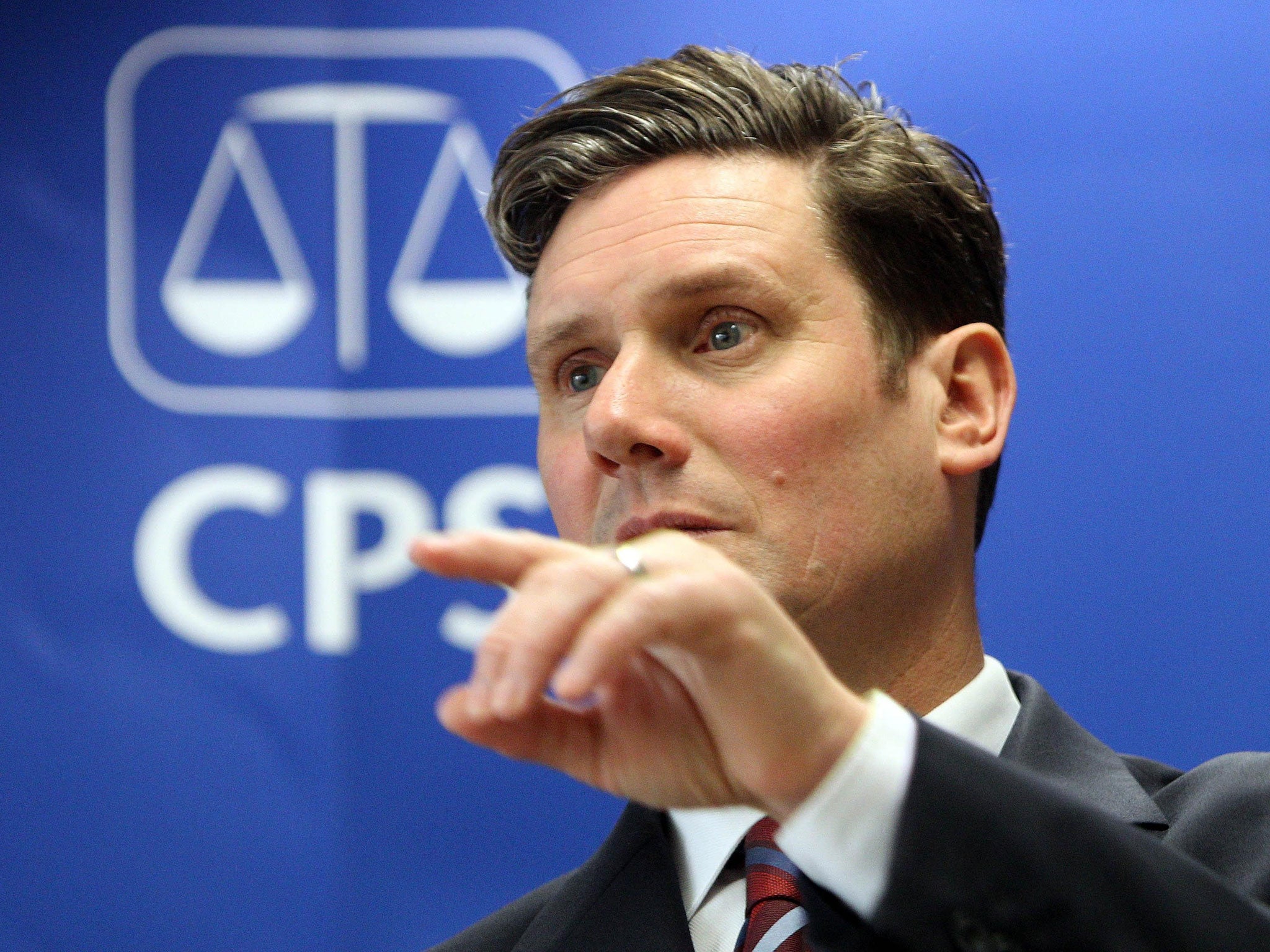Labour ‘keen for Keir Starmer to stand for election’ as former DPP works on new 'victim's law'
Former Director of Public Prosecutions already advising party on a victim’s law’ for manifesto

The former Director of Public Prosecutions Keir Starmer is being lined up by Labour to stand as a candidate for Parliament, The Independent understands. On Friday the party announced that Mr Starmer would lead a group drawing up plans to create a new “victim’s law” that will be a key manifesto pledge at the next general election.
The law would provide new protections and rights for the victims of crime – including a legal obligation for the police and prosecutors to keep crime victims informed about the progress of investigations.
But The Independent understands that senior party figures are keen for Mr Starmer’s role to extend beyond being an adviser to the party, and that discussions have taken place about a possible run for Parliament either before or at the next election.
It is understood that the former Health Secretary Frank Dobson is considering standing down from his Holborn and St Pancras seat and Mr Starmer could be a candidate to replace him. Last night Mr Starmer would not confirm his interest in a seat but said he was “considering” his options after standing down as DPP last month.
Mr Starmer, 51, was a highly regarded human rights lawyer before taking over the Crown Prosecution Service in 2008.During his time in office he navigated a series of tricky political cases – including the decision to prosecute Chris Huhne, the first cabinet minister in British history to be compelled to resign as a result of criminal proceedings.
Speaking yesterday, Mr Starmer said he that while he was proud of the progress that had been made in making victims central to the criminal process, more had to be done.
“A lot has been done on the victim’s rights over the past 15 years but there is a lot further we have to go,” he said. “My own sense after five years as DPP was that the more vulnerable you were, the less well the criminal system protected you.”
Mr Starmer added that, as part of this, he believed that the criminal justice system needed to be renamed the criminal justice service. “I know it is just language, but if you did that it would make it very clear to everyone working in the service why they are there and what their responsibilities are.”
Hinting at his own political ambitions, he suggested that he had also become conscious that in areas such as victims’ rights there was only so much that could be done without political involvement.
“The further I got into issues like victims’ rights [at the CPS] the more I realised you could only do so much outside the need for legislation,” he said. “These are tricky questions of political leadership.”
Among the changes that are likely to be included in the new law will be more protection for rape victims and abused children when they are questioned in court. Victims of crime could also be given a single point of contact so they find it easier to get information about the progress of their case.
The Labour peer Baroness Lawrence of Clarendon, whose son Stephen was murdered by racist thugs, and Peter Neyroud, former chief constable of Thames Valley Police and a criminologist at Cambridge University, are also on the task force, which is expected to report by the end of next year. Shadow Justice Secretary Sadiq Khan said the proposals, if implemented, would give the public greater confidence in the criminal justice system.
Life in brief: Keir Starmer
Reportedly named after the former Labour leader Keir Hardie, Mr Starmer was educated at Reigate Grammar School, University of Leeds and Oxford University.
As a defence barrister, he specialised in human rights and became a Queen’s Counsel in 2002 before being appointed Director of Public Prosecutions in 2008.
He stood down last month and has gone back to private practice.
Join our commenting forum
Join thought-provoking conversations, follow other Independent readers and see their replies
Comments